- Home Page
- Company Profile
-
Our Products
- Fire Suppression Systems
- FK 5112 Suppression System
- Clean Agent Cylinderless System
- Clean Agent Cylinderless System for Car
- Wind Turbine Fire Detection and Suppression System
- Vehicle Fire Protection System
- Mild Steel Novec 1230 Fire Suppression System
- Fire Extinguishing System For Electrical Cabinets
- Aerosol Fire Suppression System
- Novec 1230 Flooding System
- Hfc 227ea Based Fire Suppression System
- Modular Clean Agent HFC236fa Extinguishers
- Aerosol Based Fire Suppression System
- FM200 Fire Suppression System
- Cylinder Less Tube Based Fire Detection Suppression Systems
- High Voltage Transformer Fire Suppression System
- Hfc227ea Clean Agent Fire Extinguishers
- Novec 1230 Clean Agent Suppression Systems
- Carbon Steel Fm 200 Fire Suppression System
- Direct Tube Based Fire Suppression System
- Novac 1230 Fire Flooding Systems
- Clean Agent Fire Suppression System
- Hfc 227ea Auto Fire Extinguishing System
- Car Fire Protection System
- Fire Suppression For Power Generators
- Hfc227ea Total Flooding System
- Dual Agent Retardant fire Suppression System
- Heat Sensing Tube
- Clean Agent Fire Suppression System for Wind Turbine
- Bus Engine Fire Protection System
- Fire Trace System
- Novec 1230 Fire Suppression System
- SEVO Tubing Suppression System
- Fire Detection And Fire Suppression System
- Heavy Vehicle Fire Suppression Systems
- Fire Sprinkler System Installation Service
- Vehicle Fire Suppression System
- Pre Engineered Fire Suppression System
- Server Rack Fire Suppression System
- Mild Steel Fire Suppression Systems
- Fire Suppression System (Capacitor Panel)
- Electrical Panel Detection Suppression System
- Fire Detection Tube Suppression System
- Fire Extinguishing System For Electrical Panel
- Electrical Panel Gas Suppression System
- Novec 1230 Fire Suppression System for Industrial
- Fm200 Gas Based Fire Suppression Systems
- FM200 Gas Based Fire Suppression Systems For Wind Turbines
- Tube Based Fire Suppression System
- Novec 1230 Fire Gas Suppression System For Electrical Panel
- Novec 1230 Fire Extinguishing System
- Novec 1230 Gas Suppression System For Wind Turbine Fire Suppression System
- Nitrogen Injection Transformer Fire Protection System
- Electrical Panel Fire Suppression System
- Dual Agent Retardant Fire Suppression System
- Diffusible FE36 Fire Suppression System
- Hazardous Cabinets Fire Suppression System
- Chemical Fire Suppression Systems
- Nitrogen NITFP System
- Automatic Fire Detection and Suppression System
- Novec 1230 Fire Suppression Systems
- Fire Suppression For Wind Turbines
- Bladder Tank Proportioning System
- Electrical Panel Fire Suppression
- Fk 5112 Fire Suppression System
- Fire Extinguishing Systems
- Fire Alarms And Detection Systems
- White Addressable Duct Detector
- UV IR Flame Detector
- Agni Sounder Hooter
- Addressable Fire Alarm System
- Fire Alarm System Amc Service
- Conventional Fire Alarm System
- Digital Addressable Fire Alarm System
- Aspirating Systems Smoke Detectors
- Agni Addressable Security Fire Alarm
- Fire Detection And Fire Alarm System
- Uv Ir Flame Detector System
- Ravel 2 zone Conventional Fire Alarm System
- Addressable Photoelectric Duct Detector
- Fire Alarm Sounder
- Fire Response Indicator
- Vesda Aspirating Smoke Detection System
- 4 Zone Addressable Fire Alarm System
- Ravel 4 zone Conventional Fire Alarm System
- Fire Detection Fire Alarm System
- Co2 Flooding/Suppression System
- High Pressure Co2 Automatic Fire Extinguishing System
- Co2 Gas Fire Suppression System
- CO2 Suppression System
- CO2 Fire Flooding
- ELECTRICAL PANEL CO2 FLOODING SYSTEM
- Automatic Pipeline Co2 Fire Suppression System
- Co2 Fire Flooding System
- Co2 Cylinder Fire Suppression System
- In Direct CO2 Flooding System
- Co2 Based Fire Suppression Systems
- Automatic CO2 Flooding System
- Automatic Co2 Flooding System
- Gas Based Co2 Flooding System
- Automatic Pipeline CO2 Fire Suppression System
- Co2 Fire Suppression System
- Passive Fire Protection
- Fire Extinguishers
- Twin Trolley Type Fire Extinguisher
- Co2 Fire Extinguisher Refilling Service
- Clean Agent Type Fire Extinguisher
- Amc For Fire Fighting System
- Co2 type fire Extinguisher
- Mild Steel Wet Chemical Fire Extinguisher
- Carbon Steel Abc Fire Extinguisher
- Automatic Ceiling Mounted D Type Fire Extinguisher
- Water Spray Sprinkler Systems
- Kanex Fire Extinguishers
- Fe36 Clean Agent Fire Extinguisher
- Modular Dry Chemical Powder Extinguishers
- Kitchen Fire Suppression System
- Kitchen Fire Suppression System
- Mild Steel Kitchen Fire Suppression
- Kitchen Hood Fire Suppression System
- Automatic Kitchen Fire Extinguishing System
- Kitchen Fire Extinguisher
- kitchen Nozzle Fire Suppression System
- Restaurant Kitchen Fire Suppression System
- Fire Suppression System For Commercial Kitchen
- Commercial Kitchen Fire Suppression System
- HW & MV Fire Protection System
- Commercial Gas Leak Detector
- Medium Velocity Water Spray System (MVWS)
- Transformer Fire Protection System
- Transformer Fire Prevention System
- Transformer Fire Suppression Systems
- Conveyor belt system fire protection system
- Nitrogen Injection Fire Protection System For Transformer
- High Velocity Water Spray System (HVWS)
- Fire Suppression Accessories
- Fire Hydrant System
- Clean Agent Gas Refilling
- Fire Fighting Foams
- Smoke Detector
- Ravel Beam Smoke Detector
- Addressable Photoelectric Smoke Detector
- Addressable Smoke Detector
- Fire Alarm Addressable Smoke Detector
- Battery Addressable Smoke Detector
- Polycarbonate Smoke Detector
- Agni Smoke Detector
- Conventional Optical Smoke Detectors
- Addressable Duct Smoke Detector
- Agni Wireless Smoke Detector
- White Polycarbonate Smoke Detector
- Manual Call Point
- Fire Retardant Fabric
- Fire Alarm Control Panel
- Heat Detector
- Beam Detectors
- Fire Door
- HW&MV Fire Protection
- Fire Cable Coating
- Fire Cable
- Public Address Systems
- Hydraulic Hose
- Fire Suppression Systems
- Contact Us
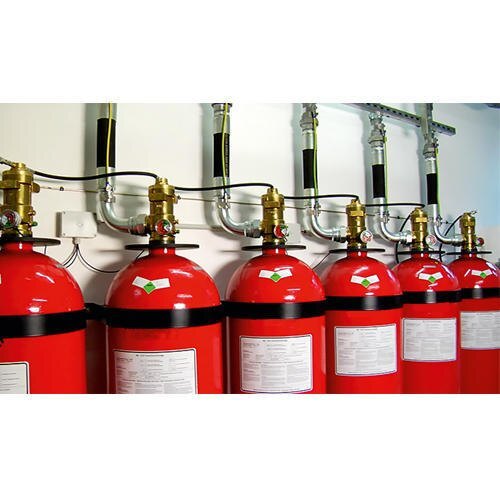
Hfc 227ea Auto Fire Extinguishing System
90000 INR/Piece
Product Details:
- Warranty 1 YEARS
- Material M.S
- Frequency HZ Hertz (HZ)
- Dimension (L*W*H) METER Meter (m)
- Weight KG Kilograms (kg)
- Temperature Range CELSIUS Celsius (oC)
- Input Power WATT Watt (W)
- Click to view more
X
Auto Fire Extinguishing System Price and Quantity
- 90000 INR/Piece
- 1 Piece
Auto Fire Extinguishing System Specification
- METER Meter (m)
- FIRE SUPPRESSION SYSTEM FOR ELECTRICAL PANEL
- KG Kilograms (kg)
- CELSIUS Celsius (oC)
- WATT Watt (W)
- 1 YEARS
- M.S
- HZ Hertz (HZ)
- FIRE SUPPRESSION SYSTEM FOR ELECTRICAL PANEL
- RED
- FIRE SUPPRESSION SYSTEM
- YES
Hfc 227ea Auto Fire Extinguishing System Trade Information
- Cheque
- 100 Piece Per Month
- 10 Days
- Yes
- Free samples available with shipping and taxes paid by the buyer
- LOT
- Asia
- All India
- ISO & CE CERTIFICATE
Product Description
An Auto Fire Extinguishing System, also known as an automatic fire suppression system, is a safety mechanism designed to detect and suppress fires in various environments, such as homes, businesses, industrial facilities, and vehicles. These systems are crucial for fire prevention and protection, as they can quickly respond to fires, reducing the potential for injury, property damage, and loss of life.
Here are the key components and features of an Auto Fire Extinguishing System:
1. Detection System: Most automatic fire suppression systems incorporate a detection system that monitors for signs of fire or heat. Common detection methods include smoke detectors, heat detectors, flame detectors, and infrared detectors. When the system detects a fire or excessive heat, it triggers the suppression process.
2. Suppression Agent: The system typically uses a specific suppression agent to extinguish the fire. The choice of suppression agent depends on the type of fire and the environment. Common agents include water, foam, dry chemicals, clean agents (e.g., halon or newer alternatives like HFC-227ea), and carbon dioxide (CO2).
3. Activation Mechanism: Once the detection system identifies a fire, it activates the suppression agent. This can involve releasing the agent through nozzles or sprinklers, deploying a fire suppression system directly onto the source of the fire, or flooding the area with the extinguishing agent.
4. Control Panel: A central control panel or fire alarm panel manages the entire system. It receives signals from the detection system and coordinates the activation of the suppression agent. The control panel may also provide visual and audible alarms to alert occupants.
5. Piping and Distribution: In larger systems, pipes and distribution networks are used to deliver the suppression agent to the appropriate locations. The piping can be pre-engineered or designed specifically for the installation.
6. Manual Override: Some systems allow for manual activation by individuals in the event of a fire emergency. This feature can be useful when human intervention is needed.
7. Maintenance and Testing: Regular maintenance and testing are essential to ensure the system functions properly when needed. This may include inspecting detectors, replacing expired suppression agents, and checking control panel functionality.
Auto Fire Extinguishing Systems are commonly found in various settings, including commercial kitchens (using kitchen fire suppression systems), computer server rooms, industrial facilities, aircraft, and even certain types of vehicles. The choice of system and suppression agent depends on the specific fire risks and safety requirements of the environment.
FAQs of Hfc 227ea Auto Fire Extinguishing System:
Q: What is the input power requirement for Hfc 227ea Auto Fire Extinguishing System?
A: The input power requirement for Hfc 227ea Auto Fire Extinguishing System is WATT Watt (W).Q: What is the warranty period for Hfc 227ea Auto Fire Extinguishing System?
A: The warranty period for Hfc 227ea Auto Fire Extinguishing System is 1 YEAR.Q: What is the temperature range that Hfc 227ea Auto Fire Extinguishing System can operate in?
A: Hfc 227ea Auto Fire Extinguishing System can operate in a temperature range of CELSIUS Celsius (oC).Q: What is the material used for Hfc 227ea Auto Fire Extinguishing System?
A: The material used for Hfc 227ea Auto Fire Extinguishing System is M.S.Q: What is the weight of Hfc 227ea Auto Fire Extinguishing System?
A: The weight of Hfc 227ea Auto Fire Extinguishing System is KG Kilograms (kg).Q: What is the color of Hfc 227ea Auto Fire Extinguishing System?
A: The color of Hfc 227ea Auto Fire Extinguishing System is RED.Q: What is the usage and application of Hfc 227ea Auto Fire Extinguishing System?
A: The usage and application of Hfc 227ea Auto Fire Extinguishing System is as a fire suppression system for electrical panels.Tell us about your requirement

Price:
Quantity
Select Unit
- 50
- 100
- 200
- 250
- 500
- 1000+
Additional detail
Mobile number
Email
Other Products in 'Fire Suppression Systems' category
" We mainly want inquiries from Gujarat, Rajasthan, Madhya Pradesh, Maharashtra, Goa. "


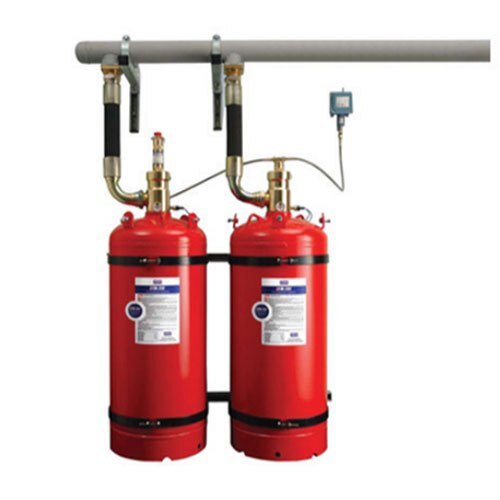
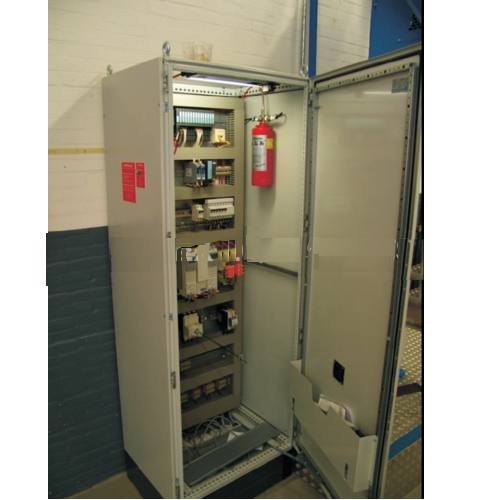
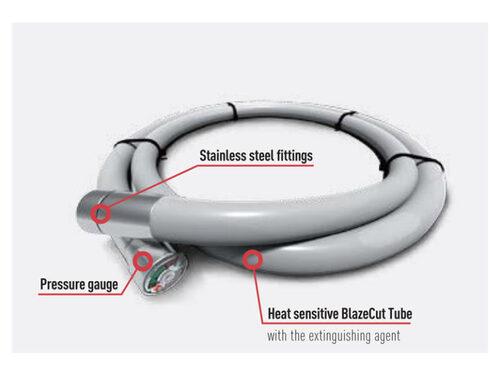
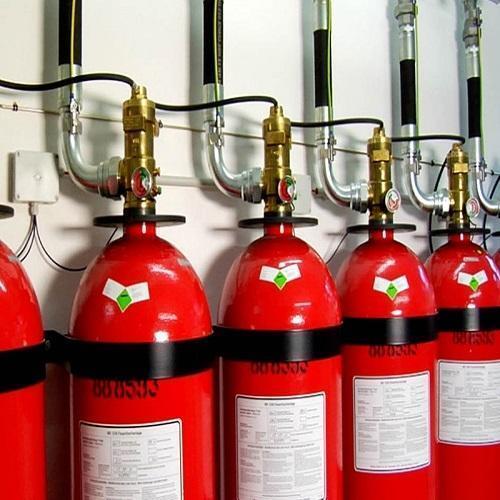

 English
English Spanish
Spanish French
French German
German Italian
Italian Chinese (Simplified)
Chinese (Simplified) Japanese
Japanese Korean
Korean Arabic
Arabic Portuguese
Portuguese